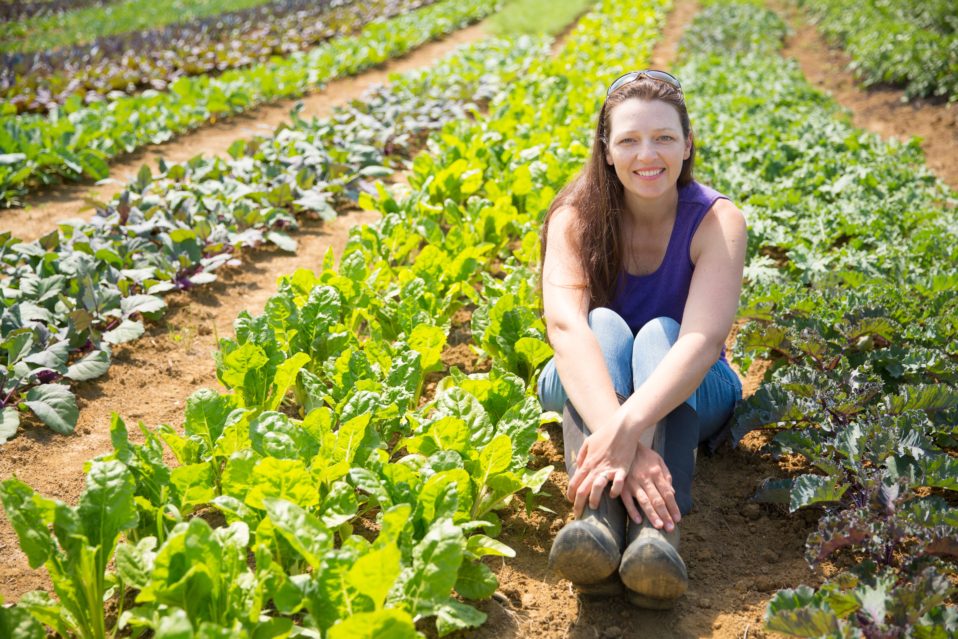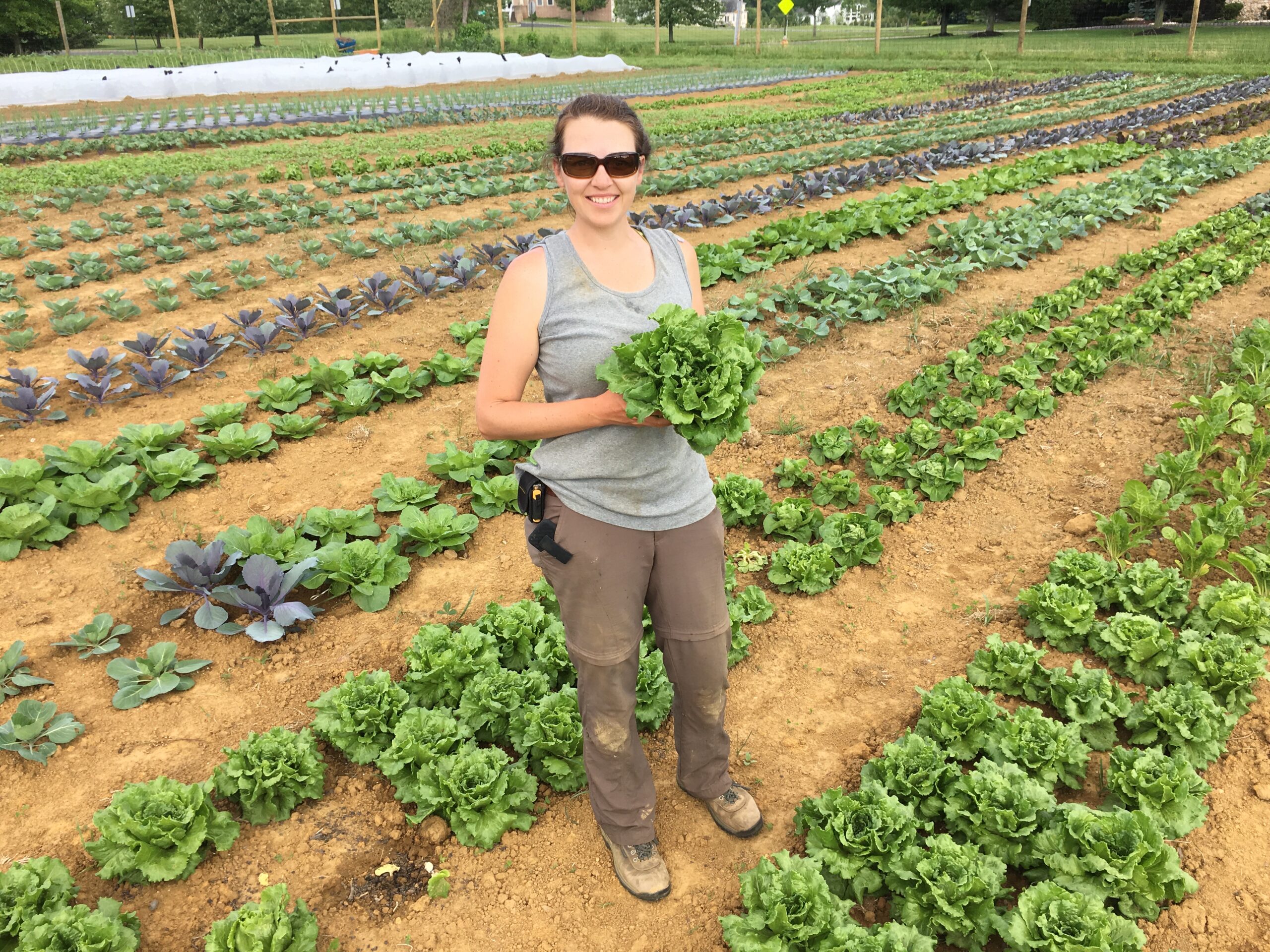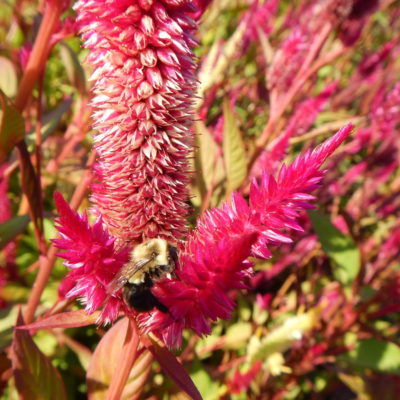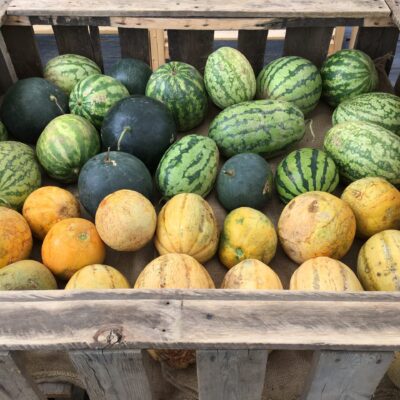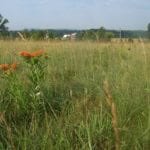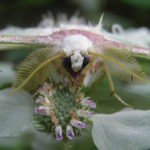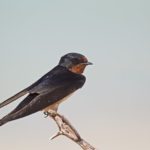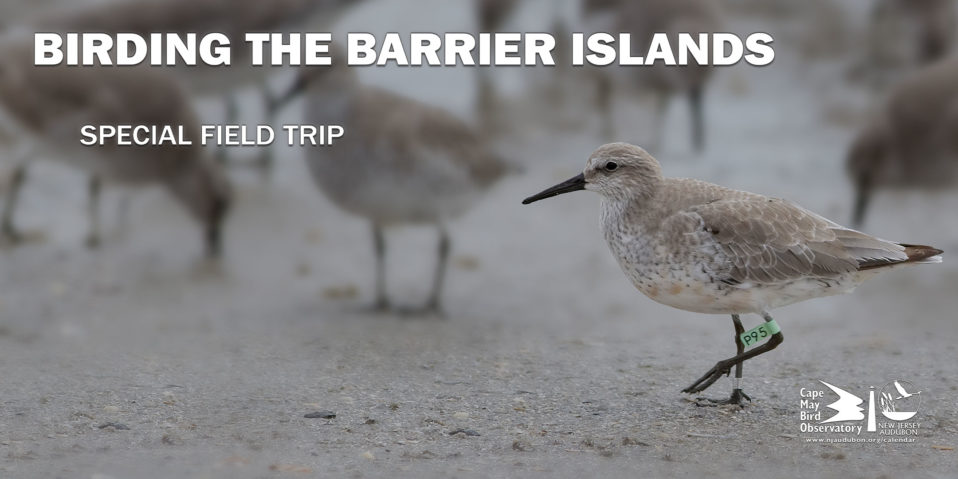Two of the most challenging professions work side by side to feed our entire nation – farmers and pollinators. Technically being a pollinator isn’t a profession, but those insects and other wildlife work very hard to produce over $40 billion worth of products annually in the United States!
Pollinators gather food in the form of pollen and/or nectar for themselves and in the process, transfer pollen from flower to flower. Pollination occurs, followed by fertilization and eventually, delicious food for us to eat. By feeding themselves, pollinators are feeding humans. One third of our food is directly produced by pollinators, such as bees, butterflies, bats, and many other beneficial animals. Can you imagine a summer without NJ’s state fruit and vegetable –blueberries and tomatoes? Those crops, and so many more, need pollinators in order to produce those delicious, juicy fruits and vegetables that we love.
Due to reasons such as habitat loss and irresponsible pesticide use, pollinator populations have been steadily decreasing. This is cause of concern for many reasons, including our plates being lighter and a reduction in biodiversity. And without pollinators, farmers jobs would become near impossible. Can you imagine if farmers had to go around their entire farm, row by row, extracting pollen from one flower to transfer it another?! There isn’t enough time in the day!
So, what can you do to help? A few things!
- Visit your local farmers market and say thank you to our hard-working farmers by purchasing their fresh & delicious fruits and vegetables. There is a reason why New Jersey’s state nickname is “The Garden State.” I was fortunate to have worked as a vegetable farmer for a few years. I had customers tell me that they didn’t like tomatoes. I asked if they ever had a tomato grown in our state, harvested ripe that morning, and eaten soon after? Their answer was no. They would go home with a tomato and sure enough would be back the following week to say that they now love tomatoes, but only from my farm stand! Farm fresh food, especially grown in the Garden State, is like no other. Give it a try and I promise you will have made a new friend with your farmer and expanded the foods that you eat! Added bonus – by supporting farmers, you are supporting the wildlife who pollinate their crops.
- Grow a “mini farm” in your own backyard. Crops such as zucchini, pumpkin, and melon are dependent on pollinators in order to produce their fruit. By providing pollen and nectar as a food source to pollinators, you are reaping the benefits of their work once those crops are mature to harvest. It’s a win-win!
- Incorporate natives into your garden. If you like the double benefit for both pollinators and human, focus on native plants that you can use as well. If you have sandy soil, consider planting a beach plum (Prunus martima). These small trees produce delicious plums that you can eat raw or make into jam. If you want something sweet, grow a highbush blueberry (Vaccinium corymbosum) which was originally cultivated in Whitesbog, NJ. If you want to get creative and try something unique, grow prickly pear (Optunia). New Jersey’s only cactus, you can eat the fruit, once you remove the spines of course.
Next time that you are in your garden or at the farmers market, say thank you to the “busy bees,” both farmers and pollinators, who continue feeding us.
Check out our Gardening for Wildlife page
Kristin T. Hock
Habitat Outreach Coordinator
New Jersey Audubon




